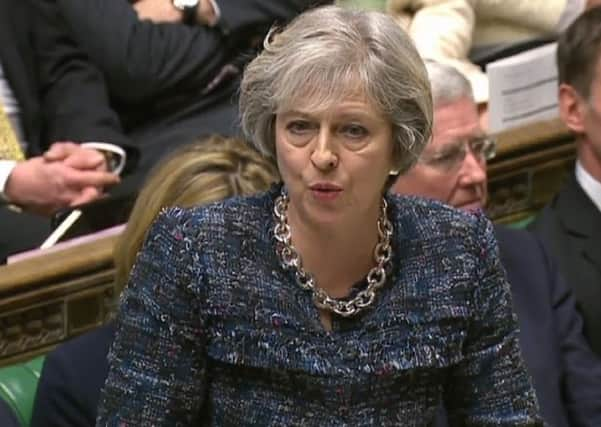PM refuses to rule out blocking Scots MPs voting on Brexit law


All EU law will be brought into UK statute by a Great Repeal Bill set to be unveiled in the Queen’s Speech later this year.
Scottish MPs could be blocked from voting on parts of the bill that apply to devolved responsibilities such as agriculture or higher education after the Prime Minister refused to rule out using controversial regulations on English votes for English laws (EVEL).
Advertisement
Hide AdAdvertisement
Hide AdIt risks opening a new front in the constitutional row over Brexit that could see a second independence referendum called before the end of the decade.
At Prime Minister’s Questions, Theresa May refused to rule out using EVEL on the Great Repeal Bill when asked by the SNP’s Kirsty Blackman.
The Prime Minister said the government would “need to look at the whole issue of reserved matters and devolved matters”, but added that “if any part of proposed legislation brought before this House applies only to England, it will be subject to English votes for English laws.”
The Scottish Parliament would normally be asked to give approval to UK laws that affect devolved responsibilities through a legislative consent motion, but such votes are not legally binding.
The SNP claimed the Prime Minister’s comments left the door open to MPs from the rest of the UK voting to retain powers over devolved areas at Westminster as they are handed back from Brussels after Brexit.
Commenting after PMQs, Ms Blackman called on the government to “set a clear commitment that devolved matters remain devolved.”
Answering questions in the Commons earlier yesterday, Scottish Secretary David Mundell insisted that no devolved powers would be “re-reserved” after Brexit.
And in her speech setting out the government’s strategy for talks in Brussels this week, Mrs May said Holyrood would gain the “right” powers when the UK leaves the EU.